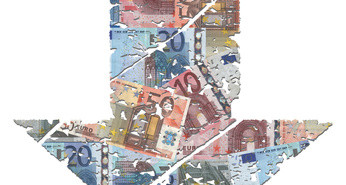The Italian elections weighed on the euro and shook financial markets. The uncertainties around Italy may hurt the single currency, but another sharp selloff could come from the upcoming ECB decision, says David Song of DailyFX.
In the interview below, Song discusses the implication of the Italian elections on the euro, the safe haven trade, on Spain and on currency wars.
David Song studied macroeconomic policies under a visiting scholar at the Federal Reserve Bank of St. Louis while attending the Zicklin School of Business at Baruch College, and graduated with a Bachelor of Business Administration degree majoring in finance. During his undergraduate program, David acquired a strong understanding of technical analysis from a former-president of the Market Technicians Association, and incorporates both fundamentals and technicals in his analysis. After starting at DailyFX, David authors the daily briefings for the U.S. Open as well as the Trading the News report. 
1. The Italian elections rocked the markets. Will the political news from Italy dominate the euro’s trade in the next few weeks?
Uncertainties surrounding the Italian elections may drag on the Euro, but the European Central Bank interest rate decision on tap for March 7 may trigger a sharp selloff in the single currency should President Mario Draghi show a greater willingness to push the benchmark interest rate to a fresh record-low. As the deepening recession in the euro-area threatens price stability, slowing inflation across the euro-area should prompt the central bank to adopt a more dovish tone for monetary policy, and we may see the Governing Council carry out its easing cycle throughout 2013 as the governments operating under the single currency become increasingly reliant on central bank support.
2. Mario Draghi already got a weaker exchange rate for the euro but bond markets are also weaker. Could the ECB announce any policy changes or reiterate that the OMT is ready for use?
Beyond its non-standard measures, we may see the ECB target the benchmark interest rate as President Mario Draghi sees inflation ‘significantly’ undershooting the 2% target in 2014. As the euro-area faces a deepening recession, the Governing Council may announce another 25bp rate cut in an effort to encourage a sustainable recovery, and the central bank may sound more dovish over the near to medium-term as the EU scales back its growth forecast and sees the economy contracting 0.3% this year.
3. The Italian elections also sent the yen surging. Are we about to witness a full return of the “risk on / risk off” trade, or was it a one-time event?
The ‘risk on/ risk off’ trade should continue to deteriorate amid the shift in market dynamics, and we will maintain a bearish outlook for the Japanese Yen as the new government takes a more aggressive approach in combating deflation. As Prime Minister Shinzo Abe nominates Asian Development Bank President Haruhiko Kuroda to head the Bank of Japan, there’s growing speculation that the new central bank head will introduce more non-standard measures to achieve the 2% target for inflation, and the Japanese Yen remains poised to face additional headwinds throughout 2013 as the BoJ continues to embark on its easing cycle.
Here is the previous interview with David Song: Euro to face headwinds from deepening recession, debt crisis
4. The focus on Italy has put Spain in the shadows. On one hand, Spain can benefit from a weaker euro and from the focus on Italy, but on the other hand, it could suffer badly from contagion. What will be the influence on Spain?
Although Spain appears to be flying under the radar, the ongoing turmoil in the periphery countries may heighten the risk for contagion as the governments operating under the monetary union struggle to get their house in order. As the euro-area faces a deepening recession, we’re seeing a growing number of Europe officials scale back their push for austerity, and Spain may seek further assistance this year as the region faces the highest rate of unemployment within the euro-area.
5. With the crash of EUR/JPY, can we expect an end to the talk about “currency wars”? Or is it only a ceasefire?
With an increasing number of headlines highlighting a ‘currency war,’ we’ve seen the EURJPY come off of a three-year high, but the fundamentals appear to be playing a greater role in driving price action for the pair as the fundamental outlook for the euro-area deteriorates. Although the BoJ is widely expected to expand its balance sheet further, the shift in the ECB’s tune has dampened the appeal of the Euro, and the single currency remains at risk of facing further declines over the near-term as the central bank shows a greater willingness to shore up the ailing economy.
